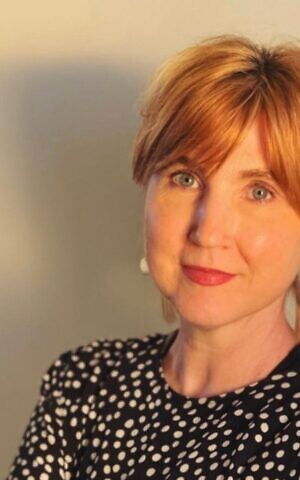A link to the past to look to the future
Tulips for Breakfast is set in Amsterdam during WWII, during which the main character Adelena lives in hiding. She has been left in the care of a non-Jew as her parents believed that was her only chance of survival.
Catherine Bauer grew up listening to her father’s recollections of World War II.
He grew up in Germany, close to the border with France, and like many around them, the Catholic family experienced negative attention from the Nazi party. Bauer’s father and his brothers were altar boys and their parents always ensured they fulfilled their duties at mass every Sunday morning. This, of course, clashed with when Nazi party meetings were, meaning there would often be knocks on the door from Nazi party members questioning why the family wasn’t in attendance.
Bauer’s grandfather, who she said had a “huge heart”, was even set upon by the Gestapo one evening and left alone in a ditch. Another time, while working on a water pipeline under a local orchard, her grandfather turned to the Russian prisoners of war who were working, and starving, and told them that he was going to the bathroom. If they happened to pick up any of the rotten fruit, he would not know about it.
She said it was the family’s form of “passive resistance”.
These stories, and a fascination with history, led her to read The Diary of Anne Frank. She was 13 at the time, the same age that Anne was when she went into hiding.
“I was quite an introspective child in many ways, and I had a very vivid imagination,” she told The AJN. “I related so much to Anne’s thought processes. I think if we had met, we would have been great friends.”
Bauer appreciated the way Anne looked at life. “I was just incredulous at the fact that she was going through all of that, and still she seemed to have such hope. She felt like everybody had a goodness in them somewhere,” Bauer said. “That really struck me.”
 Bauer has previously written three books – two picture books and an educational book aimed at older kids. Recently, she published Tulips for Breakfast, which is loosely based on Hannah Goslar-Pick, a friend of Anne’s and a Holocaust survivor.
Bauer has previously written three books – two picture books and an educational book aimed at older kids. Recently, she published Tulips for Breakfast, which is loosely based on Hannah Goslar-Pick, a friend of Anne’s and a Holocaust survivor.
Tulips for Breakfast is set in Amsterdam during WWII, during which the main character Adelena lives in hiding. She has been left in the care of a non-Jew as her parents believed that was her only chance of survival.
As with her other books, Tulips for Breakfast is based on a lot of research, including the real-life account of Goslar-Pick herself.
“I emailed Hannah back in 2015, and I didn’t hear anything back for a while. But then I received a hand-written letter,” Bauer recalled, explaining that her email had bounced back. “She still made the effort to write to me, and she was really encouraging. But she reiterated the need for accuracy and being true to what happened. For me, that was probably the most poignant moment because I felt like I had this direct connection with Anne in a way. Hannah had been childhood friends with her, she was one of the last people to perhaps engage with Anne in Bergen-Belsen before her death – they were on either side of the fence – and that really inspired me to keep going.”
Bauer also spoke in depth to survivors and children who had been hidden during the war. She spoke to historians, researched the online archives and spoke to experts at the Sydney Jewish Museum and Yad Vashem. She even went so far as to interview nursing staff at Sydney’s Wolper Jewish Hospital who were able to share the late-life impacts of the Holocaust that they see with patients.
She said that the story was a long time coming.
“It’s the sort of story that’s been with me in one form or another since I was a teenager, I suppose. And I’ve collected thoughts and feelings and snippets of dialogue, perhaps unconsciously, over the years,” she said. “[I hope people remember] that this happened. It was a reality for millions of people. And in remembering the past, we hopefully won’t repeat [it].”
Tulips for Breakfast is published by Ford Publishing, $19.95 rrp


comments